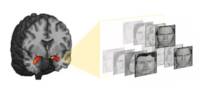According to a new report published in The Physics Teacher by academics from the University of Texas at Arlington, online education is beneficial for teaching complex concepts like quantum information science (QIS) to high school science teachers.
“COVID-19 forced educators to adjust their educational best practices to an unfamiliar virtual classroom, and professional development was no different,” said Karen Jo Matsler, assistant professor in practice for UTeach at UTA and the study’s principal author.
Ramon Lopez, a physics professor, served as the project’s coprincipal investigator. Chandralekha Singh from the University of Pittsburgh was a coauthor.
Ideally, QIS is taught in a classroom with hands-on activities to allow learners to see and touch how things like maglev trains and quantum levitation work. However, our experiences have shown that incorporating appropriate pedagogy and content into online learning can be effective for teaching these topics.
Karen Jo Matsler
QIS is a new discipline of science and technology that combines physical science, arithmetic, computer science, and engineering. It is essential for daily products such as cellphones and solar technologies. However, most high schools do not teach the subject, preventing pupils from gaining the necessary abilities to pursue profitable careers.
Matsler and her colleagues hoped to teach QIS to high school science teachers in 2021 as part of a $1 million National Science Foundation project, allowing them to apply their newly gained knowledge in the classroom.
“However, the pandemic made us scrap our original plans for in-person training to an online environment,” Matsler said. “We knew that teaching QIS online would be challenging, but we were pleasantly surprised how well it worked.”

Matsler, Lopez, and their colleagues discovered that emailing participants some of the material ahead of time helped them become acquainted with the topics. The educators then used Zoom, which includes features such as chat, polls, and breakout rooms, to keep the students involved in the learning process. They also conducted exercises in which learners had the opportunity to experience teaching the content, which was another strategy that helped people stay interested.
To minimize cognitive overload, the team discovered that primary discussions should be limited to 15 to 30 minutes, with breakout sessions lasting five to seven minutes, for a total session time of roughly 90 to 120 minutes.
“This gave participants ample opportunities to discuss the quantum concepts in small groups varying from two to six participants,” Matsler said. “During these small discussions, leaders rotated in and out of the rooms to check on the participants, clarify instructions and answer questions.”
The instructors also recommend “icebreaker” activities to increase community engagement in virtual learning.
“These icebreaker activities can easily be used to engage students, take attendance and gauge how much the individuals know about the upcoming subject lesson,” Matsler said. “A key element to all of this online learning is making sure the learners feel they are in a safe community to learn and exchange ideas.”
The scientists also discovered that short, relevant movies were effective for teaching complex topics. They propose keeping the chat option enabled during videos so that attendees can ask questions and stay engaged.
“Ideally, QIS is taught in a classroom with hands-on activities to allow learners to see and touch how things like maglev trains and quantum levitation work,” Mr. Matsler said. “However, our experiences have shown that incorporating appropriate pedagogy and content into online learning can be effective for teaching these topics.” Understanding the existence of a viable virtual alternative is critical as the country increases its efforts to speed quantum research and development in order to remain competitive in this field.”
















